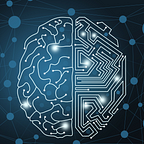Healthcare breakthrough using Artificial Intelligence
Artificial intelligence is a rapidly evolving technology that is aimed to create a human-like inelegance that is affected by the Internet. It can learn, plan, perceive and process natural language as well as reason depending on how users interact with each other.
Innovation, made it possible to bring AI closer to our everyday lives. Using the collection of Big Data and the expansion of the Internet of Things (IoT), has made a perfect environment for new AI applications and services to grow not only in the digital world but also it is already visible in the medical world.
The aim of healthcare AI applications is to analyze relationships between prevention or treatment techniques and patient outcomes. AI programs are applied to practices such as diagnosis processes, treatment protocol development, drug development, personalized medicine, and patient monitoring and care. AI technology in healthcare has basically covered the four key segments in the healthcare industry, including healthcare, medicine, health insurance, and hospital.
Some of the evolution that AI has brought to the table are the technologies that are involved in the healthcare, such as but not limited to, medical imaging, electronic medical record (EMR), assisted diagnosis and treatment, disease risk prediction, health management and drug discovery.
AI healthcare has helped in optimizing operations, simplifying processes and minimize errors, increasing automation and promoting quality of healthcare insurance services. It also has the potential to be a new engine for economic growth through cost reduction, minimized operational costs.
AI has set standardized messaging and clinical coding. Regulate health insurance through applications of standards and policies.
AI can help in improving surgical performance through robotic surgery and can reduce these case-to-case variations and even help improve the efficiency the surgeons.
AI also has opened a new path for the pharmaceutical companies to simplify drug discovery as well as, drug repurposing. According to the California Biomedical Research Association, “Only five in 5,000 of the drugs that begin preclinical testing ever make it to human testing and just one of these five is ever approved for human usage”[1].
AI in healthcare aims at helping people stay healthy. With the rise of the Internet of Medical Things (IoMT) in consumer health applications, AI healthcare will help save decades of research and billions of dollars by avoiding trial and error that has been there for centuries.
[1] Kolabtree.com
References:
· Deloitte.com
· wikipedia.com
